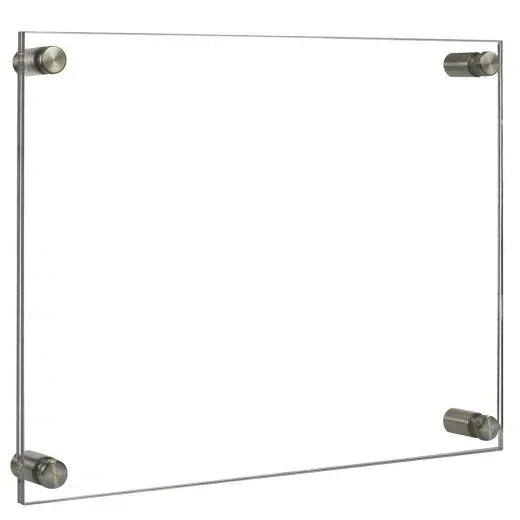Picture Frame Glass: Museum Glass vs. Conservation Clear vs. UV70 vs. Regular Clear
What type of glass is best for picture framing?
It depends on the piece and where it hangs. Museum Glass is ideal for originals and irreplaceable art (anti-reflective, 99% UV). Conservation Clear protects valuable prints and posters with 99% UV. UV70 offers near-invisible clarity with about 70% UV filtering. Regular Clear is budget-friendly for easily replaceable items.
Modern, simple, elegant custom framing—made to order. Visit our brick-and-mortar frame shop at 213 Boulevard, Hasbrouck Heights, NJ (15 minutes from NYC). One of the most important choices you’ll make is your glazing (glass) option. The right glass protects your art, reduces glare, and keeps colors bright over time.

Have questions already? Message our framing experts or explore custom framing options.
Quick Comparison: Which Glass Should You Choose?
| Glass Type | Best For | Key Benefits | UV Protection | Glare/Clarity |
|---|---|---|---|---|
| Museum Glass Premium | Original art, limited editions, heirlooms, detailed/color-rich work | Virtually eliminates reflections; color-brightening transmission; durable, easy to clean; 2.5 mm rigidity | Up to 99% | Virtually no reflections; no “orange peel” distortion |
| Conservation Clear Most Popular | Photos, posters, valuable prints, keepsakes that need strong UV protection | Trusted, time-tested UV defense; 2.5 mm rigidity; no “orange peel” effect | Up to 99% | Clear viewing; standard reflections |
| UV70 Glass | Displays needing crystal-clear color with some UV filtering and low reflectivity | Water-white clarity; anti-reflective; brightens colors/contrast; durable surface | Up to 70% | Virtually eliminates reflections; exceptional clarity |
| Regular Clear Glass Budget | General purpose framing where UV exposure isn’t a concern | Clear, affordable choice for replaceable prints or décor pieces | ~40% | Standard reflections; clear viewing |

Museum Glass: Maximum Protection & Invisible Viewing
Features: Virtually eliminates reflections; blocks up to 99% UV; optimal light transmission to brighten colors; enhanced, easy-clean surface; no ripple or “orange peel” effect; proprietary, permanent coatings; premium 2.5 mm rigidity.
When to Use Museum Glass
- Original artwork & limited editions: Preserve detail, contrast, and value.
- Heirlooms & memorabilia: Family photos, diplomas, wedding stationery, vintage textiles.
- Highly detailed, colorful works: Watercolors, fine prints, embroidery, micro-details.
- Bright rooms: Large windows or gallery lighting where glare is common.
Example: Framing a 24×36 original watercolor for a sun-lit living room—choose Museum Glass to protect from fading and eliminate reflections.
Conservation Clear: Trusted, Everyday Archival Protection
Features: Blocks up to 99% UV; no “orange peel” distortion; permanent coating; 2.5 mm rigidity.
When to Use Conservation Clear
- Valuable photos & posters: Concert posters, signed prints, family portraits.
- Sentimental items: Kids’ art, sports jerseys in shadowboxes, travel prints.
- Rooms with moderate light: Great balance of cost and protection.
Example: Framing a signed movie poster for a media room—choose Conservation Clear to keep colors vivid for years.

UV70 Glass: Crystal Clarity with Low Reflection
Features: Virtually eliminates reflections; filters up to 70% UV; water-white substrate for true color; light transmission that brightens colors/contrast; durable, easy-clean surface; permanent coating.
When to Use UV70
- Color-critical displays: Photography, modern prints where true-to-source color matters.
- Low-glare needs: Open-plan spaces with mixed lighting where clarity is paramount.
- Good compromise: You want anti-reflective clarity but don’t require full 99% UV.
Example: Framing a large chromogenic photo for a hallway—choose UV70 to get near-invisible glass and accurate color without the very top UV tier.
Regular Clear Glass: Budget-Friendly for Replaceable Prints
Features: General-purpose glazing with approximately 40% UV protection; clear viewing; standard reflections.
When to Use Regular Clear
- Items that can be reproduced or replaced easily: Open-edition posters, children’s classroom prints, temporary décor.
- Low-light spaces: Hallways or rooms with minimal sunlight exposure.
- Budget projects: Gallery walls where you’ll rotate prints frequently.
Example: Framing a set of décor prints for a seasonal gallery wall—choose Regular Clear to keep costs down for easily replaceable art.

How to Decide: Three Questions to Get It Right
- How valuable or irreplaceable is the piece? Originals & heirlooms → Museum Glass. Signed/limited prints → Conservation Clear or Museum.
- Where will it hang? Bright rooms & large windows → Museum or UV70 for glare control. Dimmer rooms → Conservation Clear or Regular Clear.
- What’s your time horizon? Long-term display (5–10+ years) → prioritize high UV protection (Museum/Conservation). Short-term or easily replaceable → Regular Clear.
Bring your art to Modern Memory Design at 213 Boulevard, Hasbrouck Heights, NJ. We’ll show live side-by-side glass demos so you can see glare, clarity, and color differences instantly.
FAQ: Picture Frame Glass at Modern Memory Design
Does anti-reflective glass change how my art looks?
High-end AR options like Museum Glass and UV70 are designed to reduce reflections while maintaining (and often improving) perceived color and detail.
Is 99% UV protection necessary?
If the piece is valuable, sentimental, or displayed in moderate/bright light, 99% UV (Museum or Conservation Clear) is strongly recommended.
What if my wall gets direct sun?
Use Museum Glass for the best defense against fading and glare. We also recommend avoiding direct sunlight when possible.
Will Regular Clear be OK for my poster?
Yes—if the poster is easily replaceable and not in a bright room. If you want it to last, consider Conservation Clear.
Can you frame 3D objects like jerseys or keepsakes?
Absolutely. We build custom shadowboxes and typically recommend Museum or Conservation Clear for protection and presentation.



Leave a comment